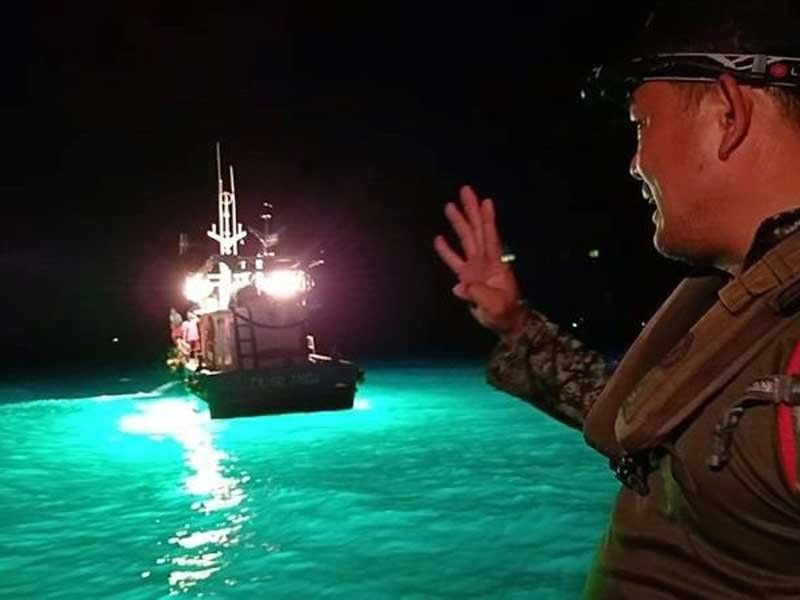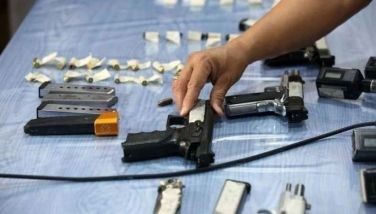Palace move to suspend fishing vessel monitoring lauded

MANILA, Philippines — Malacañang’s decision to suspend the implementation of Fisheries Administrative Order (FAO) No. 266 was lauded as a “bright move” that would help boost local fish production and ensure food security in the country.
FAO 266, which was issued by the Bureau of Fisheries and Aquatic Resources (BFAR) in 2020, required all commercial fishing operators to install satellite transponders so that they can be tracked and for them to report their catch through the Vessel Monitoring Measures (VMM) and Electronic Reporting System (ERS), respectively.
However, Executive Secretary Lucas Bersamin, by authority of President Ferdinand Marcos Jr., issued on March 13 a memorandum directing the Department of Agriculture (DA) and BFAR to hold in abeyance the implementation of FAO 266 nationwide pending the final resolution over its constitutionality by the Supreme Court.
Aside from the DA and BFAR, the memo was also addressed to the Office of the Solicitor General (OSG), the Department of Trade and Industry and the National Telecommunications Commission (NTC).
In issuing the memo, Bersamin, the country’s former chief magistrate, cited “supervening events” that compelled the exercise of an abundance of caution on the part of implementing agencies of FAO 266 and the principle of “inter-branch” courtesy among the three branches of government.
Roderic Santos, a director at Inter-Island and Deep Sea Fishing Association (IDSFA), said Malacañang’s move augurs well for the local commercial fishing industry, which has been severely affected by the country’s dependence on fish imports and high fuel cost triggered by the war in Ukraine.
“The suspension of FAO 266 is a bright move as it would definitely boost the country’s fish production, which is important in attaining food security,” Santos said. “FAO 266 limits fish production in the Philippines, while the country resorts to massive importation.”
According to Santos, the sharp price increases in fuel cost ranging from 40-50% of total operational costs has had a negative impact in fishing operations.
“Before the Russian-Ukraine war, it only ranged from 20-30%. Commercial fishing operators had to cut down on their operations and many of them did not even break-even during this time,” he pointed out.
The Palace memo was issued a month after the Alliance of Philippine Fishing Federations Inc. (APFFI) wrote a letter to the Office of the President — through the Executive Secretary — concerning BFAR’s implementation of VMM and ERS for local commercial fishing vessels.
APFFI is composed of IDSFA, Quezon-Marinduque Fishing Boat Operators and Fishermen’s Association, United Bicol Fishing Federation, Bisayas Alliance of Fisherfolk and Operators Reform Inc., Zamboanga-based SOPHIL Fishing Association Inc. and One Visayas Fish Network Inc. The group’s catch is primarily galunggong and sardines.
In its letter dated Feb. 13, 2023, the APFFI informed Bersamin about the permanent injunction issued in June 2021 by the Malabon City Regional Trial Court (RTC) Branch 170 against the implementation of FAO 266, declaring it as null and void for being unconstitutional.
This prompted BFAR to elevate the matter to the Supreme Court, which has yet to issue a decision on the case.
APFFI had also informed Malacañang that despite the injunction, BFAR kept on issuing memoranda to the various fishing companies to comply with FAO 266 and threatened not to issue permits and licenses if the fishing vessels were not equipped with the satellite transponders required under the administrative order.
It pointed out that BFAR was supposed to halt the order’s implementation in light of the permanent injunction which remains in place unless lifted by the Supreme Court.
In fact, former BFAR chief Eduardo Gongona was even found guilty of 10 counts of contempt by the Malabon RTC for disregarding the injunction order, APFFI said.
According to the group, BFAR is still attempting to implement the regulation based on an opinion of its legal counsel, the OSG.
NTC was also enjoined by the trial court from implementing FAO 266. The regulatory body is supposed to issue certain unique identification numbers designated as Maritime Mobile Service Identity or MMSI, which BFAR needs to implement the VMM.
Aside from the continuous attempts by BFAR to enforce FAO 266, the APFFI also relayed the present operational difficulties of the commercial fishing operators, especially the impact of fuel prices. The alliance said that some of its members even had to suspend operations or reduce its workforce just to survive.
While this had already negatively affected fish supply, implementing FAO 266 will put an added burden and cost on the fishing operators, it added.
The alliance also informed Malacañang that based on certain publications, a case was filed against BFAR officials in connection with the irregularities in the bidding for the VMS contract amounting to P2.09 billion.
Following the Malacañang order deferring the enforcement of FAO 266, environmental group Oceana Philippines cautioned the government against another yellow card warning from the European Union (EU).
But Santos said this warning from Oceana Philippines is misplaced.
Santos noted that the Philippines’ principal export of marine products to the EU is tuna.
The EU issues a yellow card as a warning that it will not allow a particular country to export fish to Europe if it does not implement the VMS.
“Commercial fishing operators who catch tuna are covered by another regulation, which is FAO 260. They are also required by various international regions where they fish to have VMS, like the Western and Central Pacific Fisheries Commission,” Santos explained.
He said FAO 266 applies to commercial fishing in the Philippine territory and Exclusive Economic Zone, while FAO 260 applies to Philippine flag vessels that also go into the high seas or international waters.
Those covered by FAO 260 continue to comply with the regulation as it is not the subject of any case or injunction unlike FAO 266, the IDSFA director said.
Santos also slammed Oceana for supporting the use of the P2.09-billion VMS based on its belief that it will prevent overfishing in the country.
“The allegation of overfishing is not supported by credible data. Catch data is not accurate and at present there is no credible scientific study conducted in the Philippines,” Santos stressed.
According to Santos, the benchmark used are international standards and do not take into account the local species and conditions.
“Why is OCEANA interested in pushing for the implementation of the P2-billion VMS project? Wouldn’t this fund be better used in increasing fish production?” Santos asked.
- Latest
- Trending






























